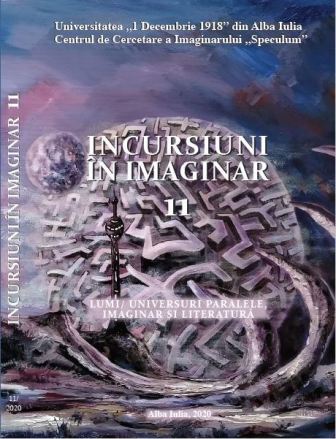Între rai și iad. Angelologie și demonologie hristică
Between Heaven and Hell. Angelology and Christian Demonology
Author(s): Petru Adrian DanciuSubject(s): Christian Theology and Religion, Customs / Folklore, History of Judaism, Romanian Literature, Philosophy of Religion, Philology, Theory of Literature, Sociology of Religion
Published by: Editura Aeternitas
Keywords: demonology; messianism; angelology; prophet,; the angels of the nations; Samael;
Summary/Abstract: The Jewish demonology during Christ's coming corresponds to a warrior messianism, capable of defeating the Roman occupation, seen as a divine punishment for unbelief. Jewish monotheism is subject to a foreign and unwilling power, another world that overlaps any desired politics and religiosity superior to any type of paganism. The world is ruled by warrior angels. They know the ascent and descent according to the divine will, Israel cannot escape the magnetic force they exert on the politics and religiosity of their peoples. If in Babylon Judaism developed its demonological beliefs, under the domination of the Roman Empire, Messianism knows its staging by asserting several personalities, one of them being Jesus Christ, son of Mary. His prophecy revolves around the idea of the divine Kingdom descending to earth, as well as the inherent opposition of the devil, manifested by the presence of false Christs. This belief is almost foreign to the Jewish demonology of the time. The idea of the coming Kingdom creates a strong confusion, the theologians of the time (scribes and Pharisees) associating the event with an open conflict against the Roman occupation, the Jews being seconded by the power of God, respectively by angels. Christ must respond differently to the need for freedom, and the claim to bear the divine appellation (Son of God) does not make sense, moreover, it is a blasphemy. The need for a divine sign, often required from Jesus, has its logical basis on this messianic, warrior expectation. The confusion grows all the more because, of not understanding its message, the purpose of the antichrists appears inexplicable. The research follows exactly these aspects, of the split parallel worlds, from the perspective of the crisis of Jewish monotheism and a demonology that makes it impossible to frame the saving model of Jesus in the politico-religious reality of the time. Although Christian theology holds that the time of Christ's coming was well chosen, He being the divine answer to this very crisis, the Judaism’s demonological view of the world corresponded less and less to the biblical prophecy. If its beginnings were situated in Babylonian captivity, the effects are seen in the distance given by the model of theological interpretation of the deeds of Christ, accused of working with the devil. Perhaps the historical moment was well chosen, but it did not correspond to the demonological mentality of the Jewish theology. Thus the Judaism is abandoned by the divinity, through the interposition of the Roman presence, facing an always announced divine kingdom. Moreover, the forgiveness of the enemy, his love does not correspond to the existing reality. Therefore, the utopian Christ's message is perceived as a blasphemy rather than an exhortation, hence the unilateral rejection of the idea that Christ is the king of the Jews.
Journal: Incursiuni în imaginar
- Issue Year: 1/2020
- Issue No: 11
- Page Range: 76-93
- Page Count: 18
- Language: Romanian

